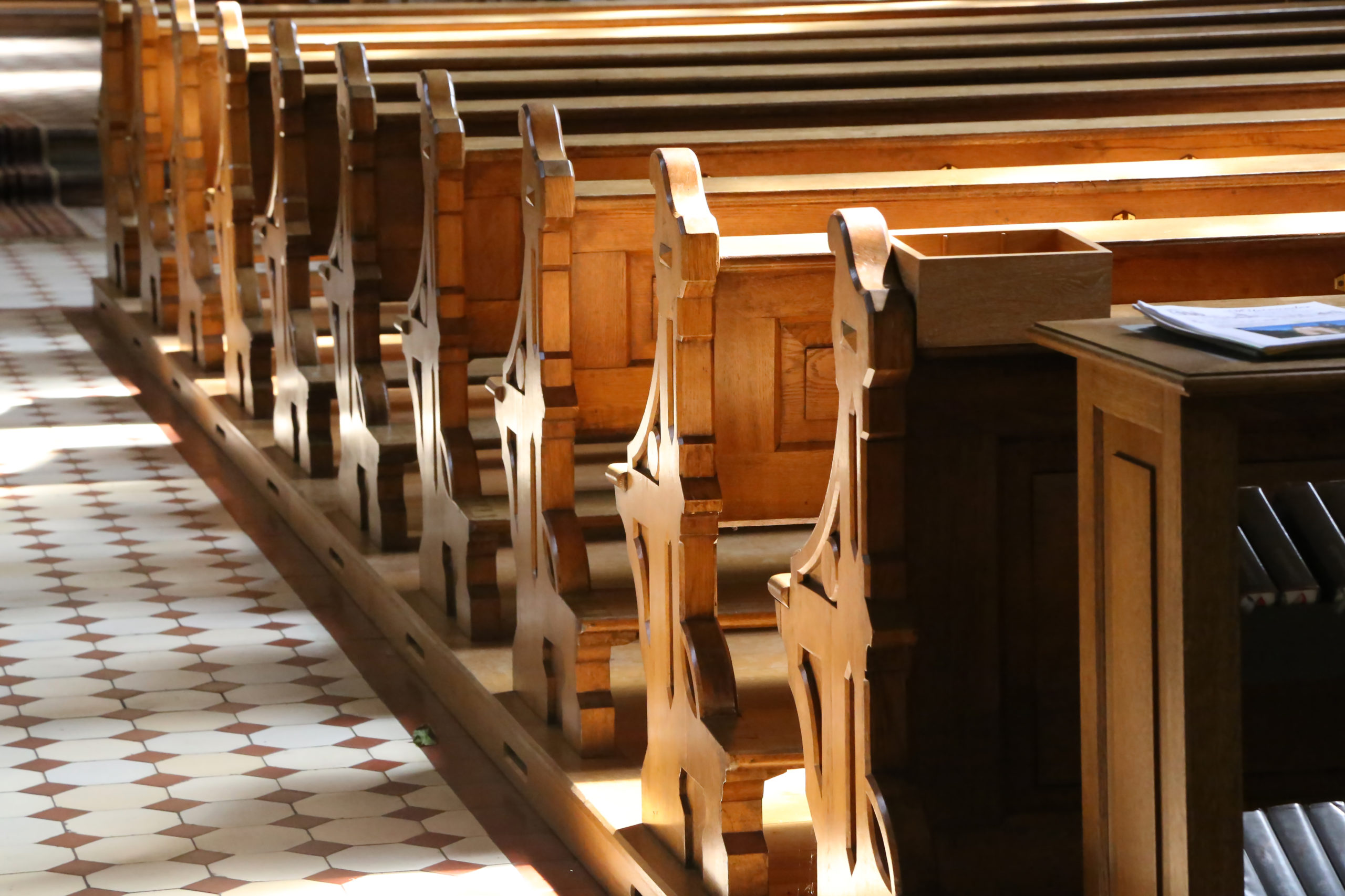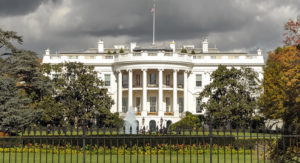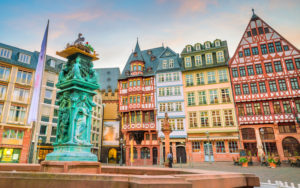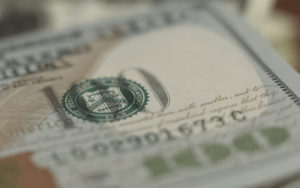
Scholars address whether houses of worship are essential amid state social distancing orders.
With close, indoor services that bring various households together, churches are perfect settings for COVID-19 to spread. Since the start of social distancing orders, however, members of some houses of worship across the country have fought back against what some of their members have argued is an unconstitutional infringement on their First Amendment right to free exercise of religion.
Religious leaders who have defied social distancing orders by holding services have faced arrest, police action, and public protests. Different states have taken different approaches when determining the applicability of social distancing orders to churches and other houses of worship. A Maryland statewide order in March, for example, expressly limited spiritual and religious activities to 10 people. New York, which initially closed all non-essential businesses, issued guidance stating that “houses of worship are not ordered closed,” although the state restricted the number of members allowed to congregate at any given time. Meanwhile, Texas’s statewide order classified “religious services conducted in churches, congregations, and houses of worship” as “essential services.”
How states approach religious rights in the context of social distancing orders will likely remain a relevant concern as more states loosen their restrictions. Current Centers for Disease Control and Prevention guidance notes that state and local authorities should consider the First Amendment right to religious worship when establishing reopening plans.
States’ social distancing orders appear to have tapped into constitutional questions ripe for debate: When may a state limit people’s rights to assemble and pursue practices called for by their religious beliefs? On the other hand, does an order that exempts churches appear to favor religious beliefs over non-religious beliefs?
These challenges came to a head this month when President Donald J. Trump announced his view that churches and other houses of worship are “essential” and that states must allow them to remain open. The U.S. Department of Justice has also stepped in, supporting churches by filing two amicus briefs in cases in Mississippi and Virginia.
Under current U.S. Supreme Court precedent, state and local governments can regulate religious actions through applicable general laws that do not specifically target religious activity. As cases over religious liberty and public health orders progress in court, the legitimacy of any state’s social distancing order may depend on whether religious gatherings are treated in a manner similar to other types of nonreligious activities.
This week’s Saturday Seminar focuses on social distancing regulations and their effects on houses of worship.
- Churches are not constitutionally entitled to exemptions from social distancing orders, Berkeley Law professor Dan Farber argues in Legal Planet. Farber claims that, although social distancing directives do restrict religious freedom, the right to religious freedom is not absolute, and courts should uphold state orders. “In a pandemic, a ban on all large gatherings should survive even strict scrutiny,” Farber writes. A ban that applies to churches, Farber argues, is as “narrowly drawn” as possible because it is “limited to the time the epidemic continues.” In addition, Farber explains that just because a state exempts certain stores does not mean it therefore needs to allow churches to open. Farber notes that a store such as Walmart sells essential items including food and drugs and, unlike a church, the store can spread crowds out.
- In a recent article published in Vox, Ian Millhiser evaluates President Trump’s claim that he will “override” governors if states refuse to allow houses of worship to reopen. Millhiser argues that President Trump “almost certainly” does not have the power to follow through on that pledge, because pandemic management responsibility is reserved to the states. Although the U.S. Congress may have authority to pass legislation preempting state laws that mandate closures, the President cannot unilaterally preempt state law. Millhiser claims that a federal decision requiring churches to reopen may come from Congress or the courts, as “an increasingly conservative judiciary” may not follow current Supreme Court precedent allowing for religious institutions to be regulated the same as other institutions, so long as the regulations do not target them for inferior treatment.
- Virginia’s governor should amend a state directive that prohibits social gatherings of more than 10 people in order to end litigation that could create adverse precedent, Noah Feldman of Harvard Law School argues in an article for Bloomberg. Lighthouse Fellowship Church, with the backing of the Justice Department, has brought suit claiming that the directive unconstitutionally targets it and other religious services because it has been forced to close, while retail and professional workplaces have been allowed to continue operating under new safety measures. Feldman suggests that Virginia’s order may stem from a lack of trust that faith groups will maintain social distancing, but he writes that this justification falls short without further supporting evidence. Allowing the case to continue could give a sympathetic judge the opportunity to strengthen laws favoring religious institutions at the public’s expense, he writes.
- Churches have been hypocritical during the coronavirus outbreak, Cornell University’s Nelson Tebbe and University of Virginia’s Micah Schwartzman and Richard Schragger argue in The Washington Post. On the one hand, they assert that churches have claimed that the First Amendment entitles them to special exemptions from stay-at-home orders. On the other hand, churches also argue that they should be treated like other businesses or nonprofit employers for taxpayer funding. The scholars, however, argue that “if religious groups receive public support, they should also abide by neutral and generally applicable rules.” Tebbe and his coauthors explain that churches can invoke these seemingly paradoxical arguments because of the Supreme Court’s previous decisions and the Trump Administration’s policy agenda. The country’s current constitutional and policy vision, they assert, is one that promotes the interests of religious actors and majorities, rather than religious neutrality that is necessary during a time of national crisis.
- As various groups grapple with the decision either to continue gathering for religious practice or adhere to COVID-19-related regulations, a recent article in Canopy Forum states that faith communities should not push back against state orders. “As with other freedoms now cabined in the name of public safety, religious freedom must take a backseat,” Tanner J. Bean of Fabian VanCott and Robin Fretwell Wilson and Brian A. Smith of the University of Illinois College of Law argue. They explain that, although religious freedom is protected by the U.S. Constitution, the government may sometimes impose restrictions even if they burden religious practice. Although exemptions to current stay-at-home orders are available to some groups, Bean and his coauthors argue that religious communities should not seek exemptions in the face of a deadly pandemic and instead should “put others first.”
- Exempting places of worship from quarantine orders is a “terrible mistake,” University of Texas Law School’s Sanford Levinson and Georgia State University College of Law’s Eric Segall write in the American Constitution Society Expert Forum. “Some people have claimed a constitutional right to freely exercise their religion in large groups despite the negative health consequences of doing so,” but this is a “misreading of the Constitution,” Levinson and Segall argue. They assert that the issue around potential exemptions is a rare certainty in constitutional law because stay-in-place orders were not enacted due to religious bias and prohibiting large gatherings is the least restrictive way to advance the compelling governmental interest of slowing the virus’s spread. Levinson and Segall also argue that granting exemptions only to those who gather for religious reasons, but not exempting other gatherings, may violate the constitutional rights of non-believers.
The Saturday Seminar is a weekly feature that aims to put into written form the kind of content that would be conveyed in a live seminar involving regulatory experts. Each week, The Regulatory Review publishes a brief overview of a selected regulatory topic and then distills recent research and scholarly writing on that topic.



